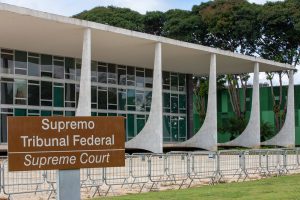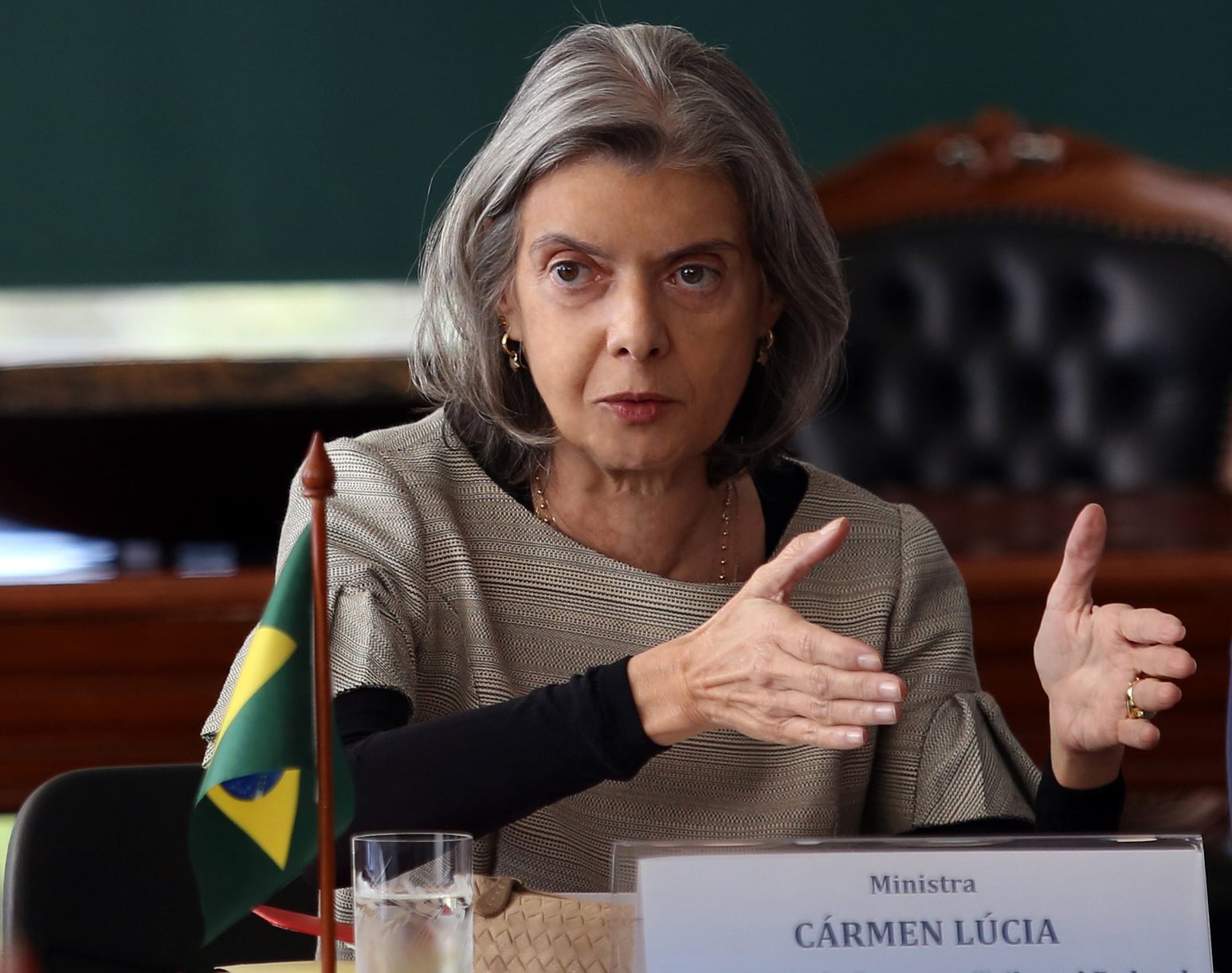Against all odds, the Brazilian highest court revoked the return of three brothers to Colombia, as ordered by the three courts before. Mother and lawyer spoke to the hague papers about faith and fairness.
Brasilia, 15th September 2024
Unanimous. The Brazilian Federal Supreme Court (STF, in its Portuguese acronym) ruled that three siblings who once lived in Colombia shall remain with their mother in Brazil, where they have been together since 2021 when she was granted their custody. The First Chamber’s five judges voted against the return order to Colombia, overturning the three previous instances’ decisions.
“I feel relieved, thankful, in peace, and my faith was very important throughout this process”, the mother told the hague papers.
The groundbreaking judgement took into account the eldest boy’s health condition, whose cerebral palsy and quadriplegia require delicate medical treatment and posed him with a grave risk of death during the flight to Bogota.
The Brazilian highest court also understood that returning the two younger brothers only could be a stressor for all of them, who grew up together and should not be separated now.
“Children are people, not things in dispute as if they could be handed over, given back or returned for the convenience of adults,” said the case’s rapporteur, Justice Cármen Lúcia.
She noted that although the Hague Convention’s general rule is the prompt return of children to the country of their previous residence, its interpretation and application rely on their interests in each case.

According to Judge Cármen Lúcia, the situation was dire and procedurally complex. She highlighted that this strictly complies with fundamental rights, human dignity, the right to life, and the right to be fully protected.
“Adult disputes should be solved between them,” added the rapporteur. The chamber fully agreed and followed her vote to the effect that remaining in Brazil represented the best interests of these children.
Justice Cristiano Zanin, for instance, emphasised that the Hague Convention provides exceptions to the general rule, which applied to the case in his point of view.
A lost cause: the background
Two of the three brothers were born in Brazil and one in the United States to their Brazilian mother and a Paraguayan father. Currently aged 8, 10 and 11, respectively, they all lived in the city of Barranquilla, Colombia, until 2020.
In September of that year, the mother travelled to Rio de Janeiro with the eldest due to medical tests and the paralysis treatment he had been undergoing in Brazil for over a decade since birth, despite living abroad.
His father and siblings came to visit for holidays and the father went back to Colombia alone because of a surgery the eldest had back then, and for which his brothers stayed together with him. In 2021, the mother was granted custody of the children.
Making use of the 1980 Hague Convention on International Child Abduction, however, the father requested his sons’ return to Colombia. The treaty establishes that custody matters must be decided where children had their “habitual residence” before the change once it was carried out without the other parent’s consent.
Judges from the first and second instances confirmed that keeping the children in Brazil breached the father’s rights according to the Hague Convention and ordered their immediate return to Colombia. The case was subjected to a final review by the Superior Court of Justice (STJ, in Portuguese) last June.
The third ordinary instance upheld its previous courts’ decision though. Considering the eldest son’s travel history despite his health condition, STJ’s ministers declared they found no exception to the immediate return rule within the international treaty.
Yet, a doctor should travel along with them to take care of the eldest’s needs during the flight to Bogota, sentenced the Superior Court.
A fresh mindset: the plot twist

The mother’s defence immediately filed a habeas corpus request with the Brazilian highest judicial level, in charge of safeguarding the country’s Constitution. STF (Federal Supreme Court) accepted it, which had temporarily waived the return order for a constitutional review of that final decision.
While that meant a fourth last chance for the mother after three defeats in a row, her lawyer quit. She was told there was no way they could win at the Supreme Court. But there was no way that mother would give up on her sons.
“I never lost faith”, she insisted.
A lost cause in a race against the clock was no task for experienced barristers in their comfort zones. Alexandre de Serpa Fairbanks took up the challenge.
The child with paralysis had been hospitalised in the meantime, so the mother’s defence was urged to update the circumstances by presenting new proof. Such initiative was questioned by the father’s lawyer, Antenor Pereira Madruga Filho.
As for the rapporteur, however, a child’s life and dignity are above any debate if that were to be discussed, which wasn’t the case. According to the medical report then, the flight to Colombia would pose a risk of death, given the daily seizures in the boy’s delicate condition.
Besides demonstrating the grave risk exception enshrined by the Hague Convention’s Article 13b to repatriate the eldest boy, the mother’s defence argued how the three brothers were “fully adapted to Brazil” in compliance with the treaty’s both Articles 12 and 13b further.
Exploring 13b as a whole, Fairbanks told the hague papers that “moving the boys to another place at this point would be stressful for them, a psychological harm.” “It would make them live an intolerable situation,” he completed with the provision.
The same applies to art. 12’s exception for restitutions once the boys are settled in Rio de Janeiro, living there for the last four years, with bonds and family support. “This adaption criteria had already led the Supreme Court’s ministers to vote for a kid to not return to Spain in a case in 2022, and that seemed to me a strong precedent,” Fairbanks recalled.
“Another thing to keep in mind is the supra-legal aspect of the Hague Convention. That means it should be interpreted together with the United Nations Convention on the Rights of the Child, among other international treaties,” the mother’s lawyer underlined.
In this case, in which the eldest child’s condition played a role, Fairbanks has also evoked the Convention on the Rights of Persons with Disabilities, “which is about human rights and has been incorporated into Brazilian law as fundamental rights.” That meets the third and last exception allowed by the Hague Convention: Art. 20, regarding “fundamental principles of the requested State relating to the protection of human rights,” says its text.
All in all, the young attorney reinforced the “best interest of the child” principle, a universal guide for Justice systems when it comes to children’s matters. “It’s bound to the Brazilian Consitution’s Article 227, as well as the Minors Statute’s Art. 4,” he explained. The unanimous decision in favour of the mother and her three sons to remain in Brazil was issued on August 27, 2024.
“I had worked as an intern at the Mercosur’s Permanent Court of Review in Paraguay, where Private International Law is very present, but I had no idea how the Hague Convention affects mothers. Getting to know their situation has touched me deeply and moved me beyond what I could have ever imagined”, confessed the lawyer.
Fairbanks’s words refer to almost 2,000 mothers yearly accused of kidnapping their own children despite holding their custody and being their primary caretaker in 94% of the cases. They account for 75% of international child abductions, according to official stats. About 40% of the cases may end up sending kids away from their mothers as a result of what experts worldwide consider a misuse of the 1980 Hague Convention.
The trial was streamed live and recorded for access available at the STF YouTube channel: https://www.youtube.com/live/sp4l-CRWA7Y?si=EbL7x8G1337KKxX0
